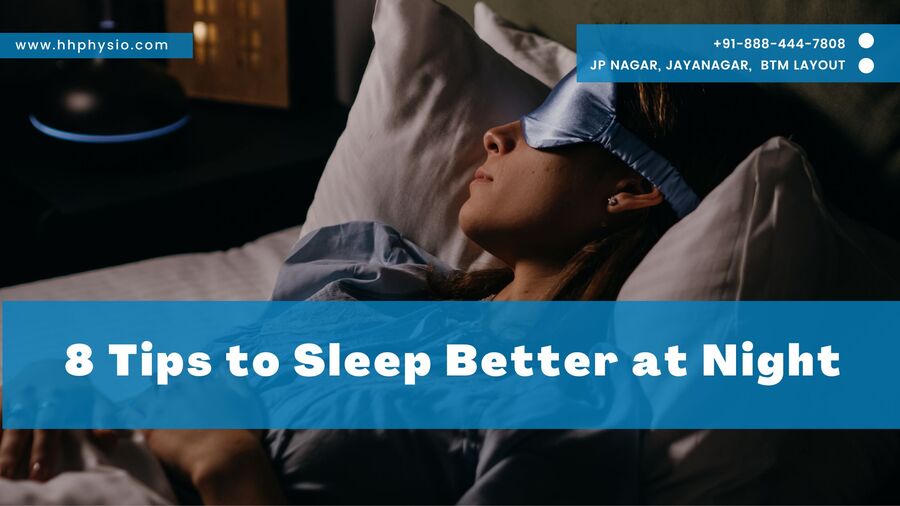8 Tips to Sleep Better at Night
Sleep is an essential component of a healthy lifestyle. It allows your body and mind to rest, recover, and prepare for the day ahead. However, getting a good night’s sleep can sometimes be a challenge. If you struggle to sleep well, you’re not alone. Here are 8 tips to sleep better at Night:
1. Stick to a sleep schedule: Set a consistent sleep schedule by going to bed and waking up at the same time each day. This helps regulate your body’s internal clock, making it easier to fall asleep and wake up.
2. Create a relaxing bedtime routine: Establish a calming bedtime routine to signal to your body that it’s time to wind down. This could include taking a warm bath, reading a book, or doing some light stretches.
3. Create a sleep-conducive environment: Your bedroom should be a quiet, cool, and dark place that promotes relaxation. Make sure your mattress, pillows, and bedding are comfortable, and minimize noise and light pollution by using earplugs, a white noise machine, or blackout curtains.
4. Limit caffeine, alcohol, and nicotine: Caffeine, alcohol, and nicotine are all stimulants that can disrupt your sleep. Limit your intake of these substances, particularly in the hours leading up to bedtime.
5. Exercise regularly: Regular exercise can help improve sleep quality and duration. However, it’s best to exercise earlier in the day, rather than right before bed, as this can have the opposite effect.
6. Manage stress: Stress and anxiety can make it difficult to fall asleep and stay asleep. Develop stress-management techniques, such as meditation, deep breathing, or journaling, to help you relax before bed.
7. Avoid electronics before bed: The blue light emitted by electronic devices can suppress the production of the sleep hormone melatonin, making it harder to fall asleep. Avoid using electronic devices, such as smartphones, tablets, or laptops, in the hour before bed.
8. Consult with a healthcare professional: If you’ve tried these tips and still struggle to sleep, it may be time to consult with a healthcare professional. They can help identify underlying causes of poor sleep and recommend appropriate treatment options.
Conclusion:
In conclusion, getting a good night’s sleep is essential for your physical and mental well-being. By following these tips, you can create a sleep-conducive environment and develop healthy habits that promote restful, restorative sleep. Tell us in our comment section, What you feel about these 8 Tips to Sleep Better at Night.
Also Read: Stages of Osteoarthritis
Share it with others…

